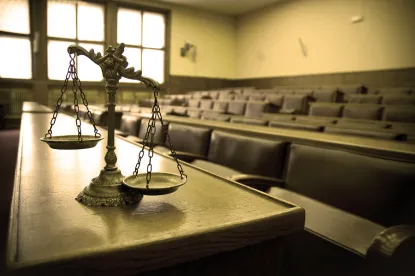As noted in two prior posts, one on May 15, 2020, and the other on May 29, 2020, the COVID-19 pandemic and the resulting explosion in the use of remote depositions present a number of novel issues for lawyers to consider, whether taking or defending depositions. Regardless of these “unprecedented times,” some things remain the same, including that it is improper for a witness to be coached about answers while the deposition is occurring.
On December 7, 2020, the Court of Common Pleas of Lackawanna County in Pennsylvania issued an order related to attorney and witness conduct during a deposition in a medical professional lability case, Shimkus v. Scranton Quincy Clinic Co., LLC, No. 19-CV-3534 (Ct. Com. Pl Lackawanna Co., Dec. 7, 2020). In this case, an employee of one of the defendants was deposed via Zoom while an attorney for her employer was in the same conference room with her. Interestingly, plaintiffs’ counsel had specified multiple conditions for the deposition including: “participating attorneys must be visible to all other participants during the deposition” and “no person is permitted to communicate with Deponent by any means not recorded in the same manner as the deposition itself.” The defense counsel for the employee witness was not visible on camera despite these conditions in the deposition notice. At multiple points in the deposition, an off-camera whisper was heard prior to a witness answering questions.
After the deposition, multiple co-defendants filed a joint motion to dismiss based on these deposition “improprieties” as the court described them. The court held a hearing on the motion to dismiss during which the employee witness and her employer’s counsel both denied that counsel had whispered answers to her during the deposition. The witness testified that she could not hear or understand the whispering. The court reviewed a compilation of deposition video clips and found that seven of the eight instances identified in the motion to dismiss were improper and warranted sanctions. The court noted that it was “unmistakably clear” that the counsel had provided answers to questions that the witness repeated in her testimony.
While the court agreed it was “indeed offended by this conduct and consider[ed] it extreme,” dismissal of the case was denied because it was clear from the record that plaintiffs’ counsel played no role in the deposition misconduct. The court weighed multiple factors in deciding the severity of the discovery sanction. The court ruled that the employee witness would be prevented from testifying at the time of trial with respect to any of the topics noted in the motion to dismiss. Furthermore, the witness and the counsel were ordered to reimburse all other counsel in the case for time spent in connection with preparation of the motion to dismiss, preparation of opposition to the motion to dismiss, and preparation for and attending the hearing on the motion to dismiss. The court also noted that the attorney’s and witness’s “financial responsibility shall remain with them personally and not their respective firms.” Finally, the matter was referred to the Disciplinary Board of the Supreme Court of Pennsylvania “for whatever action it deems necessary.”
While this scenario is hopefully rare, this order emphasizes the need to understand whether the witness will be in the same room as the defending attorney, as well as setting a condition that all attorneys be visible while other parties participate remotely (as the plaintiffs did here). Witness coaching does not begin and end with off-screen whispering. Other avenues of coaching include texting, emailing or instant messaging, so it remains important to make sure defending attorneys are visible during the deposition even if they are in a different location than the witness. The order is silent as to whether there were questions asked during the deposition about the coaching, but this case underscores the importance of asking questions on the record about a witness’s communications with others during the deposition and potentially during breaks (depending on the jurisdiction and type of witness). Asking the witness questions under oath about the types of software programs open during the deposition other than the deposition platform also is important to understanding the types of ways the witness could be communicated with during the deposition. These questions are not typically necessary when everyone is in a room together, but are worth the extra time for remote depositions.





 />i
/>i
